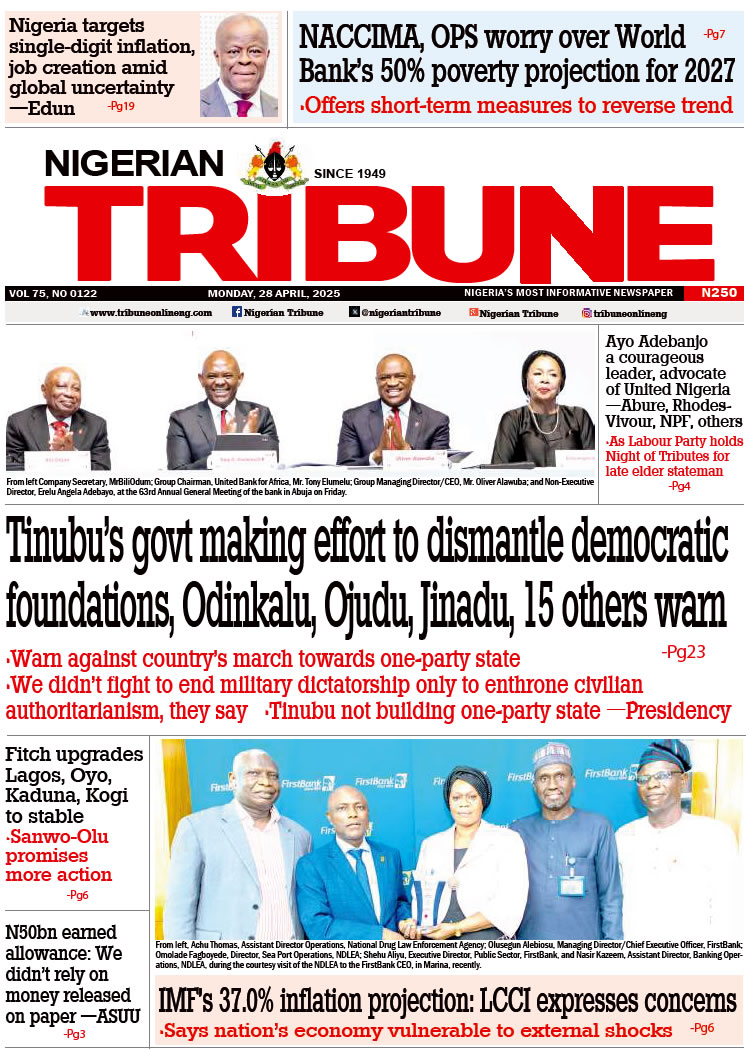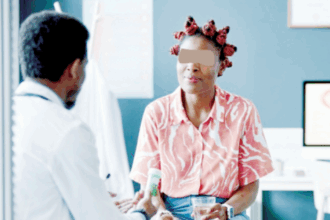Bauchi State is facing severe malnutrition crisis, with a dramatic increase in cases, particularly among children under five years, thereby raising an urgent need for multi-sectoral solutions to address the issue, including improved nutrition education and healthcare access.
Here’s a more detailed look at the situation of rising malnutrition: Bauchi State has witnessed a surge in malnutrition cases, with Doctors Without Borders (MSF) reporting a 120 percent increase in severe malnutrition admissions between January and June 2024 compared to the same period in the previous year.
The MSF’s response indicated that MSF facilities in Bauchi were already overstretched in capacity, highlighting the severity of the situation. They are treating an overwhelming number of malnutrition cases and are working to expand their response to deliver critical care to children and families.
Factors contributing to malnutrition include inflation, lack of exclusive breastfeeding, and limited access to healthcare in the facilities across the state, qualified medical staff, medications, and ready-to-use therapeutic foods.
In order to check the alarming situation, there has been a government and partner initiative. The Bauchi State government, in collaboration with partners like United Nations Children’s Fund (UNICEF) and Catalyzing Strengthened Policy Action for Healthy Diets and Resilience (CASCADE), is taking steps to address the issue, including reintroducing nutrition corners and gardens in primary healthcare centres (PHCs) across the state.
The Bauchi Field Office of UNICEF, for five days, engaged the State House of Assembly members and executive chairpersons of the 20 LGAs in the state on how to overcome the situation with particular focus on funding (budgetry allocation and prompt release).
Be that as it may, an important approach is the multi-sectoral approach which is crucial to addressing malnutrition, involving collaboration between government agencies, healthcare providers, and other stakeholders.
Also, addressing the underlying issues as the Bauchi State House of Assembly has launched an investigation into the spending of funds allocated for child nutrition, highlighting concerns about the lack of progress in improving child nutrition despite allocated funds.
The specific initiatives include the establishment of Nutrition Corners and Gardens in PHCs across the state as the state government, with support from CASCADE and the Development Exchange Centre (DEC), has reintroduced nutrition corners and gardens in PHCs to address the growing issue of malnutrition.
Another is Maternal Nutrition Programmes for which the Bauchi State has launched a research project to identify new ways to accelerate maternal health and strengthen maternal nutrition programmes just as it has earmarked N100 million to combat malnutrition in children under 5.
The Bauchi State Multi-Sectoral Plan of Action for Food and Nutrition (2024–2028) was launched with support from CASCADE Nigeria.
For two days, UNICEF engaged members of the Bauchi State House of Assembly and chairpersons of the 20 LGAs in the state on how to navigate the situation with particular focus on financing (budgetry allocation and prompt release of the allocation).
Despite collective efforts, challenges remain, including limited access to healthcare, lack of qualified medical staff, and inadequate provision of medications and ready-to-use therapeutic foods.
One major problem is the inability of the state government to release matching funding to access the Children Nutrition Fund (CNF) managed by the UNICEF which is meant to be used to procure the foods and other commodities needed to fight malnutrition.
For the past two years, the government has been dragging its feet in releasing the fund despite being one of the focal states of the operation of UNICEF in the Bauchi Field Office.
A visit to PHCs in Miri, Kofar Ran and Domiciliary in Yelwa revealed that there are children who are suffering for malnutrition and need immediate attention, yet, the needed and required nutritional commodities are not readily available, a situation that has become worrisome to the mothers.
The Executive Chairman of Bauchi State Primary Healthcare Development Board, Dr Rilwanu Mohammed, in his reaction to the development, stated, “It is not that we refused to do something about it nor the governor refused to approve the matching fund. We are in the process of preparing the memo, very soon, it will be presented to the governor for approval.”
He added, “UNICEF has sent a letter to the effect to us and we are working on it. They told us that if we give N100m they will give N200m, it will be joined together to procure the required food nutrients. We will give the N100m and they will give N200m, that is the content of the letter. We still have it.
“Other states in the Bauchi Field Office of UNICEF, Adamawa, Gombe, Plateau and Taraba have paid, except our own. It was me that has not written the memo, not that the governor refused to pay. Now, I am writing, I have proposed a bill which I am going to send to the governor as soon as he comes back for approval.
“For now, there is no cause for alarm, we are doing our work normally, we are planning for the MNCHW, everything is in place, the Committee sat last Monday with the deputy governor as the chairman of the Multisectoral approach to Nutrition, we have decided what to do. That is just one of the issues, there are many others.”
Mohammed added that, “There is the issue of Vitamin A supplementation, deworming of children and others which we are going to tackle. Now, we have 54 Community Management Centres (CMA). There were 33 before, we added 19. We are going to start work in these places. We are receiving 100,000 cartons of Ready-to-Use Therapeutic Food (RUTF) from Abuja but we are to do a training before the distribution.”
On the issue of Multiple Micronutrient Supplementation (MMS), he said, “There are about 316,000 tins of MMS which we are going to utilize during the Maternal, Newborn and Child Health Week (MNCHW), to be distributed to all pregnant women to prevent anaemia in pregnancy. Everything is on course.
“We have a budget line which will be attached to the memo for the approval of the N100m. We cannot write to the governor without making reference to the budget line, it will not work. We have N150m in the budget, we are removing N100m from it, the Local Government Funds. We are almost there, we have started the work.”
Reacting to the development, the Chief of Field Office (CFO) Bauchi Field Office of UNICEF Dr Nuzhat Rafique stated, “I think for the children in Bauchi State, this is one of the most important issues, having nutrition supplies and nutrition programmes for them.
She stressed that, “As you know, Bauchi is one of the states that indicators are very bad. I will say that malnutrition is very high. Malnutrition in itself is an indication of multiple problems. When a child gets malnourished, it means that there are so many problems in that area relating to sanitation, relating to health system, relating to poverty, no adequate food availability and also the cultural and social practices, how mothers are feeding the children, how they are using the local food and all that.”
“You know Bauchi is a very different state, I will say, because in one LGA you will see that there is a very good thousand day project supported by the UNICEF and communities are really taking it up. On the other hand, there are very faraway LGAs that there is nothing and the children are, huge a number of children you will find them very severely malnourished, moderately malnourished, and malnourished. They can be saved but because of multiple reasons, they are not able to do that and were not able to help them because basically it’s the responsibility of the state government.
“You may recall that all LGA chairpersons signed a communique that they will contribute towards the Child Nutrition Fund (CNF). You know child nutrition fund is a beautiful scheme that is managed by the UNICEF, but the donors are the UK Government, Bill Gates and Child Investment Foundation Fund. So these are the partners who joined hands together and make this child nutrition fund.
“Gombe, for instance, gave N160 million, then we matched that grant to child nutrition fund and with more than N300 million we brought the RUTF for them and many of the children are recovering RUTF across primary healthcare centers in the state.”
Rafique added that, “Similarly, in Adamawa, they have already provided N100 million that we matched. And now, this year they have already committed N300 million and we are already in the process of matching that grant and bringing the supply for them. So these are the examples from the neighboring states but unfortunately, Bauchi has not contributed anything yet.
“And as you people saw in the last year expenditure report of Bauchi which were reported as RUTF procurement, but we did not see any RUTF in the health facility. So, we are very hopeful, given the commitment of the state government. The governor and the Commissioner for Budget, Economic Planning and Multilateral Coordination, and Commissioner for Health, are all committed and dedicated people that we met and discussed this nutrition issue.”
She said further, “You can see that severely acute malnutrition is at alarming level. Out of t10 children, three are classified under severe acute malnourished. Given the circumstances of 13 LGAs where there are zero dose children. Zero dose children means that you have never reached them with any immunization. So what will be the immunity status of these children?”
“You can see that the economy is not stable, it’s also a threat. So, all these things put the children at the very high risk. We already have six out of every 10 as moderately malnourished. Moderately malnourished means that they can go into severe acute malnutrition any time and it becomes so difficult to retrieve them.”
Speaking on the Dandore and Miya Barkate villages initiative in Toro LGA, she said, “UNICEF can request that the state government takes the initiative up. We can provide technical support and help in establishing the mechanisms that can help in scaling up the initiative, but the finances need to be allocated by the state government. We have demonstrated a model of success, we have demonstrated this can work for every child in Bauchi, this is the responsibility of the state government.”
She stressed that, “Other states have done it, we have three focal states, even Plateau state which is not one of the focal states has done it. We are not doing any proper funding in Plateau like we are doing in Bauchi.
“We asked all the five states in Bauchi UNICEF Field office, three are focal states: Bauchi, Gombe and Adamawa. When we requested, Gombe and Adamawa immediately responded and they have supplied the matching grant in their facilities.
“Then we extended this invitation to states which we are not financially supporting. We are only technically supporting Taraba and Plateau states.
“Plateau had excellent response, they have already received Small-quantity lipid-based nutrient Supplements (SQLNS). I handed over in Adamawa. In Taraba, they promised that this year they are going to put in N300 million and I am sure they will do it because of the way they are committed. Only Bauchi remains.”
ALSO READ FROM NIGERIAN TRIBUNE







